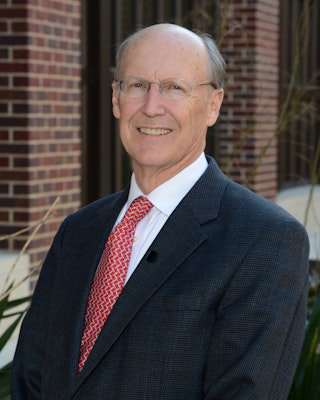Editor's Note

As we were preparing to put this issue of The Catalyst to bed, shots rang out across Dallas late one night and five police officers tragically were dead. Digital editor Andrew Kaufmann headed home from our offices around 3 a.m. that evening and, unable to sleep, wrote an essay that implores millennials and his fellow Gen Xers to step forward and lead the nation out of these wrenching times.
We offer his essay as an introduction to this issue, which we had been planning all along on the theme of next generation leadership. We also asked Dionel Waters, a millennial who leads a Dallas elementary school in an impoverished neighborhood , to share his thoughts on how leaders can help find solutions that address the violence and anger that afflicts not just Dallas, but many parts of the United States. With so many tensions roiling across the U.S. and the world, strong leadership matters more than ever.
To a large extent, that means leadership from millennials and Gen Xers, who are increasing their influence as we baby boomers enter our mature years. Numerically, that largely means millennials, who were born between 1981 and 1999. They constitute the nation’s largest demographic group, so we spend most of this edition looking at their impact now and into the future.
Paul Taylor, former executive vice president of the Pew Research Center, sets the stage with his report on the dozen things to know about millennials. Taylor’s study of millennials has been groundbreaking, including with his book, The Next America: Boomers, Millennials and the Looming Generational Showdown.
Kristen Soltis Anderson, a Republican pollster and author of The Selfie Vote: Where Millennials are Leading America (And How Republicans Can Keep Up), and David Plouffe, campaign manager for Barack Obama’s landmark 2008 victory who now advises Uber, share their analysis of millennials in a pair of Catalyst conversations. Anderson not only researches millennials, she is one. And Plouffe, a Gen Xer who later served in the Obama White House, certainly has studied demographic groups.
After taking in those big-picture looks at the next generation, read the first-person look at the future by young writers. Brittney Bain, a Bush Institute communications manager, explains that millennials are challenging America to believe its best days are still ahead. Lauren Aguirre, a new graduate of Southern Methodist University, where she edited The Daily Campus, describes a millennial life and why she is ready for tomorrow. And Phillip Lohaus, a millennial who is a research fellow at the American Enterprise Institute, reminds his generation why foreign policy should be a priority.
We also look at ways in which the next generation already is leading at home and around the world. Along with Dionel Waters explaining in a Catalyst video how he is trying to lead his school forward, you will hear from:
- GOP Rep. Elise Stefanik of New York, a millennial who is the youngest woman ever elected to Congress. She explains why transparency and responsiveness are millennial values she hopes to make part of government’s daily business.
- Jon Daniels, a Gen Xer who serves as president and general manager of the Texas Rangers baseball club. He discusses how technology and data are among the modern tools that baseball teams apply to mastering the nation’s pastime.
- Holly Kuzmich, a Gen Xer who is executive director of the George W. Bush Institute and senior vice president of the George W. Bush Presidential Center. She recommends rising leaders tackle kitchen-table issues.
- Diana Mao, co-founder of the Nomi Network and an inaugural member of the Presidential Leadership Scholars program. Her work exemplifies how millennials around the world are boldly combating human trafficking.
- Wazhma Furmuli, whose story was first presented in We Are Afghan Women: Voices of Hope. Her journey shows how a new generation is bringing fresh perspectives to some of the globe’s most difficult problems.
- We also include a profile of five next generation leaders, including Barbara Bush. They are not waiting for an IPO before they express their compassion. In the U.S. and abroad, these leaders are showing how to place social responsibility at the core of an organization’s mission.
These examples show a new generation of leaders is emerging. We should be glad. The events in Dallas and elsewhere show they will be tested, often to their limits. But our future depends upon their ability to resolve a complex set of economic, social, and political problems.
William McKenzie
Editor, The Catalyst: A Journal of Ideas from the Bush Institute
P.S. Look for The Catalyst “After-Hours” edition in early September, when we will update this issue with fresh pieces, including takes on millennials from Mark McKinnon, co-creator of Showtime’s The Circus, and Mark Updegrove, director of the LBJ Presidential Library. And look for the fall Catalyst in mid-October, when our list of prominent leaders and writers discuss what the universal quest for freedom means 75 years after Franklin Roosevelt’s Four Freedoms address.
P.P.S. As always, please subscribe so you can get the latest from The Catalyst. And please pass along the link to others who might like to read our digital journal.
The Catalyst believes that ideas matter. We aim to stimulate debate on the most important issues of the day, featuring a range of arguments that are constructive, high-minded, and share our core values of freedom, opportunity, accountability, and compassion. To that end, we seek out ideas that may challenge us, and the authors’ views presented here are their own; The Catalyst does not endorse any particular policy, politician, or party.

